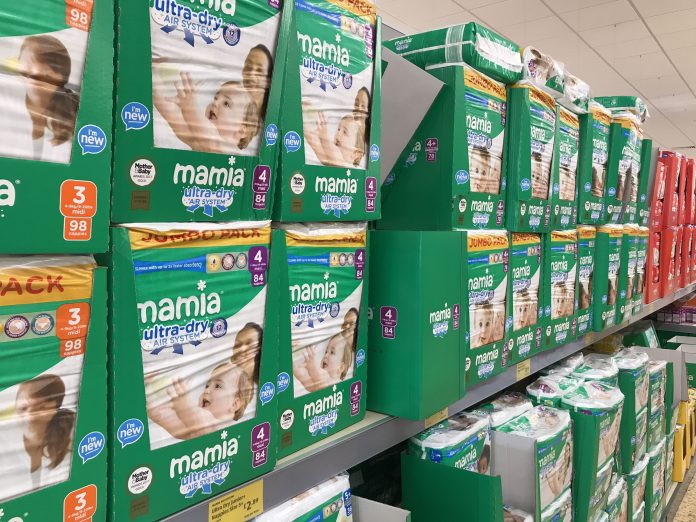Guy Schanschieff MBE, Co-Founder and Managing Director of Bambino Mio, discusses why introducing a nappy tax on disposable nappies is not the best way to tackle climate issues
As COP26 approaches, governments around the world are committing to achieving net-zero and assessing their environmental impacts. As politicians set their sustainability goals, manufacturers too are looking for ways to decrease their carbon emissions and protect the planet. From replacing plastic straws with paper, switching single-use cotton buds to reusable eco swabs and removing microbeads from their products, more businesses are taking an eco-friendly approach to develop their products.
One everyday product that hasn’t followed this trend is the single-use nappy. According to The Nappy Alliance, single-use nappies contribute to around 8% of residual waste in England and their collection and disposal costs local authorities £140 million per year. For perspective, this is equivalent to throwing away 6,000 plastic bags each year for every child in nappies. This is not only directly detrimental to the local environment, but incineration and landfill also increase carbon dioxide and methane levels, taking governments backwards in their quest for net-zero.
Reusable nappies
Let’s look at the facts. Nearly 10 million disposable nappies are thrown away every day in the UK. That equates to 3.6 billion nappies each year which will take 500 years to degrade. Switching to reusable nappies will significantly reduce landfill waste, incineration and the greenhouse gas emissions associated with both. It will also reduce resource consumption, which is responsible for destroying habitats and endangering wildlife. Although some real barriers to using reusable nappies still exist, including higher upfront costs and a lack of knowledge of their advantages, these can be addressed if there is political will to do so.
The Nappy Alliance has proposed a voucher offering at least 50% off the price of one reusable nappy in the hopes of, not only significantly reducing the cost for parents but also encouraging more people to try reusable nappies. In the long run, reusable nappies are estimated to save parents around £1,500 and, unlike single-use nappies, reusables can be passed onto siblings, extending the savings further. For further comparison, the number of single-use nappies needed before a baby begins potty training is around 4,000 to 6,000, whereas with reusable nappies you may only require 20 to 30 nappies over the same period.
The Nappy Alliance also recommends training local councils and employing experts to deliver nappy education to reduce information gaps and increase accessibility and confidence in reusable nappies. Instead of guilt-tripping or punishing parents for using disposable nappies by taxing them, which would only make people more vulnerable, businesses and authorities should do more to encourage parents to turn to reusables by raising awareness about their benefits. Not only is it better for the environment, but in the long run, it is also more cost-effective.
Child poverty
With 11.7 million people still living below the poverty line in the UK, 3.2 million being children, a nappy tax would only result in widening existing inequality. Child poverty is a pressing issue with millions of parents on low incomes already struggling to make ends meet. A nappy tax will only cause these parents more stress and worry and add to their financial burdens. The onus, therefore, has to be on businesses, manufacturers and authorities. Our proposed financial incentive scheme would be funded by reusable nappy retailers and manufacturers, as reusable nappies will save parents a considerable amount of money in the long term and effectively put money back into parents’ pockets. Local support will be funded by councils from the savings they see in collection and disposal costs.
Reusable nappies offer a real step forward, towards meeting net-zero, the UN 2030 Sustainable Development Goals, and to saving money for parents and local councils alike. But we are running out of time. If we are to protect the environment for our children and the next generation after them, we need to make the change now. In the run-up to COP26, the UK government has the chance to set an example and lead the way. I urge them to take it.











